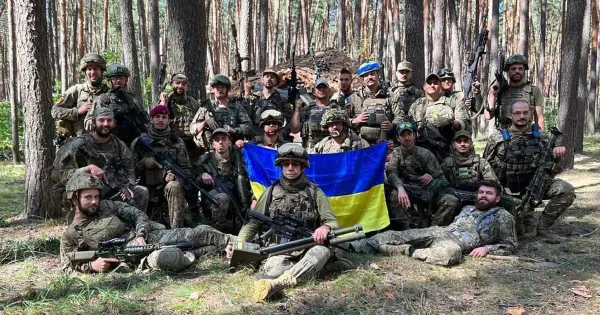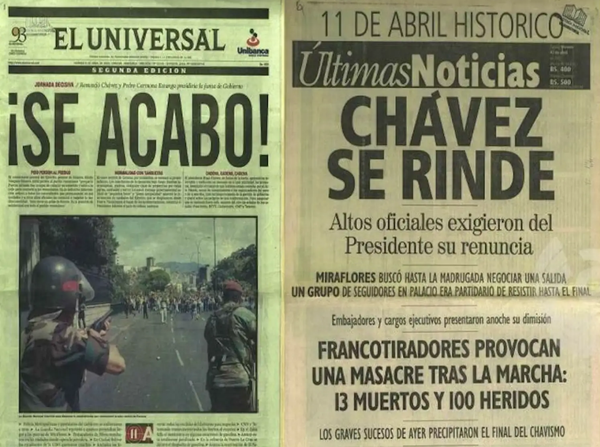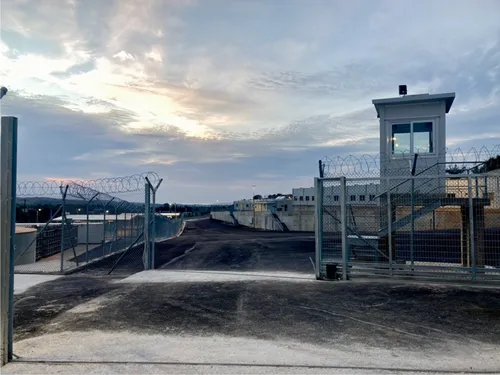Realism and Regionalism: The United States in a Multipolar World
By Michael F. Duggan, Ph.D.
This article appeared in CJFP's Winter 2024 publication.
Introduction
Successful imperialism wins wealth. Yet, historically, successful empires such as Persia, Rome, Byzantium, Turkey, Spain, Portugal, France, Britain, have not remained rich. Indeed, it seems to be the fate of empires to become too poor to sustain the very cost of empires. The longer an empire holds together, the poorer and more economically backward it tends to become.[1] - Jane Jacobs
The escalating proxy war in Ukraine and mounting tensions with China necessitate a return to an American foreign policy architecture based on realism. Rather than cling to its waning status as a global hegemon, the United States must adopt a sustainable role as the regional world power of North America. The unipolar moment thought to have begun at the end of the Cold War is over and likely never existed. As the world transitions to a more conspicuous multipolar order, it is imperative the U.S. meet it with realistic assumptions and understanding to adapt accordingly.
The days of U.S. global primacy are numbered. Thus the question becomes: will its decline be controlled and managed, or will resistance to changing geopolitical realities lead to a catastrophic war, an economic collapse, or both? Will the American empire end with a sensible post-globalist grand strategy of consolidation, or will it end in the fire of apocalyptic conflict? Rationalization and denial are the twin pillars of human psychology, and ignoring emerging realities could lead to a nuclear world war and full systemic collapse on the part of the U.S. resulting in the dismal, protracted end to the American Century. At a minimum, a new cold war will preclude the international cooperation necessary to address the unfolding existential threat of the degrading biosphere.
The U.S. should avoid these possibilities by voluntarily relinquishing the extremities of global primacy and interventionism by assuming the role of a regional world power with a robust but proportional military to match. Current debates create a false dichotomy, a misleading binary choice, between adventuristic internationalism on the one hand, and isolationism on the other. In fact, this discussion includes a broad and fruitful middle ground where reasonable strategies are found between extremes.
In his 2019 memoir, The Back Channel, CIA director, William J. Burns, then U.S. ambassador to Russia, writes “Fashioning a strategy for the post-primacy world is no easy task.”[2] I believe that this is incorrect; the frame for a new geopolitical status based on more realistic and diplomatic policy is more apparent than he realizes. Although the ideology of true believers in the foreign policy establishment has long obscured it, the path is clear if we take the time to see it. Rather, the difficulty comes in implementing it, and in deprogramming, overcoming, and replacing the lockstep ideology of the establishment—the hegemonic “Blob”—and other estates of the government committed to the dogmas of neoconservatism and liberal interventionism.
The United States does not need a new one-size-fits-all policy doctrine. It needs a fundamental shift in status, a foundation upon which policies, initiatives, and responses can be framed and implemented. My model for the new framework would have two components: 1). A return to moderate realism based on the balancing of power, spheres of influence, and policies focused on securing and protecting vital interests. 2). A return to the status and role of a regional world power. The first of these is simple and requires little explanation.
Realism
A return to an architecture of realism would mean a return to policies based on diplomacy, an intimate historical and cultural understanding of the world’s nations and regions. It would also mean returning to policy goals oriented towards meeting specific, definable national interests, as opposed to universalist ideology, and “end of history” eschatology, economic theories, and “morality” (moderate realism has historically produced better moral results than policy specifically tailored toward moral or ideological ends). It would seek the interest-based optimal rather than the ideological maximal or utopian. In most instances, it would reject policy based on undeclared wars and military actions. It would advocate seeing the United States as other nations see it, rather than in terms of exceptionalist missionaries. When the United States helps itself, it helps the world, and if it cannot lead by example, it has no basis for telling others how to live or act.
This outlook would be founded on the particularist assumption that other nations also have legitimate interests and security concerns of their own, and would acknowledge that as long as there are large countries, there will be spheres of influence in which the interests of local powers trump those of outsiders. Denying this is like denying the existence of gravity around planets and stars. The U.S. has asserted and defended its own sphere of influence for 200 years—the Monroe Doctrine—and therefore must recognize similar spheres for other world powers. Consistency is a first principle of mature foreign policy.
Regional Optimization
What would a workable, sustainable, framework for a post-hegemonic American foreign and military policy look like? It would have to be located in the broad expanse between unrestricted internationalism and self-limiting autarchy. This conceptual proximity would allow the U.S. to adopt the posture of a vigorous regional world power while taking advantage of the best economic and geopolitical real estate on the planet, its own. This would also allow it to continue to function as a world leader and to honor its treaty agreements without succumbing to the temptation of imperial overreach and the inherent illiberalism and disparities of globalist economic efficiency models.
Significantly such a posture would also allow the U.S. to disengage from parts of the world where it is not wanted or needed and where its mere presence is destabilizing. The goal would be a middle way of being involved in the world only so far as necessary to meet vital national interests. The view that the U.S. must choose between global predominance and isolation presents a false choice. The debate over the role of the United States in the world founded on the poles of isolation and empire is actually a discussion with a wide and constructive middle ground of limited internationalism, and it is between the problematic extremes that a reasonable, permanent basis for grand strategy will be found.
As a regional world power with capable aerospace, land, sea, and cyber forces to match, the United States would be able to protect its vital interests. It would still be able to project power and function as a world leader in international coalitions preserving peace and order and restoring the status quo in instances where the territorial sovereignty of a nation has been violated by another. Such a role would also provide an effective stature for fostering the international cooperation necessary to address the unfolding environmental crises. Above all, it would allow the United States to re-embrace its noble diplomatic tradition that served it so well in the days before the first option to solve complex regional problems was an airstrike or an invasion.
The desirability of consolidation into a more manageable status of a regional world power is self-evident and based on the singular fact that the United States occupies the best strategic location on the planet for a large nation. It is large enough to be self-sustaining and to have peaceful neighbors. It could therefore be exempt from the endless jostling and local contests of the World Island of Eurasia-Africa and much of the Global South to whatever degree it considers optimal.
The “North American Island”: A New Basis for Grand Strategy
What specifically would this reconfiguration look like and what would we call it? The answer to both is consolidation, and to a limited degree, disengagement.[3] The U.S. would re-embrace its traditional role as the dominant power of the “Lesser World Island” or “archipelago” of the Americas while remaining a key member of the multipolar community of world powers. It would survey the world and judiciously determine the nations and regions it would be willing to support and defend. This list would be a reduction of the current open-ended one covered by the pan-domain predominance of the U.S. military as the bulldog of economic globalization and what is hyperbolically called the “rules based liberal world order.” If “consolidation” is too uninspiring a name for this new role, then perhaps the more elaborate, history-based moniker Neo-Hadrianism will do. This name, which I first used in an article in 2013, is taken from the second-century Roman emperor who sought to preserve Roman strength via consolidation after the Empire had grown too large and unwieldy to meet its vital interests.[4]
Defending North America would be like defending an actual island with excellent internal lines, only on a larger scale. Even with hypersonic missiles, potential enemies would still have to traverse the Arctic, Atlantic, and/or Pacific Oceans—two of which are the largest physical features on the planet—in order to attack the U.S. mainland. The U.S. would remain vulnerable to submarine-launched ballistic missiles, but short of all out nuclear war these have little practical value other than deterrence. In a time where conventional, nuclear, and now cyber weapons can deter any conventional attack on the United States, its goal should no longer be global predominance, but the maintenance and protection of the American standard of living in an increasingly competitive world. With a capable conventional military and the nuclear triad in place, an aggressor nation would be heavily deterred from attacking the American homeland.
Given its hard-earned experience and prowess in air, land force, and naval operations, the U.S. should retain its traditional capacities to act in a position of leadership in instances of international military crises without shouldering the entire responsibility or a grossly disproportionate measure of the burden. In doing so, the United States would also maintain and cultivate its military cultures and traditions. In all other matters, dominant regional powers would police their respective regions. Part and parcel with sustaining its military logistical capabilities would be the continuation of the proud American tradition of disaster and humanitarian relief operations.
Within its geographical sphere of North America, the U.S. would retain a de facto regional dominance, unless escalating domestic divisions result in the breakup of the nation into regional states, thus requiring its attention to be turned inward. If the U.S. does hold together as a nation over the coming decades, it would serve our interests to act as a “good neighbor” rather than return to the heavy-handed imperialist posture of the past in the Caribbean Basin and the republics of South America. If the U.S. chooses to preserve its strength through consolidation, it will also have greater freedom and resources to effectively address a host of increasingly worrisome domestic problems that drive the deepening political divisions of the culture wars.
Conclusion: The Siren’s Song of Empire
Will the American future be a sensible, managed transition into a sustainable new status, or will it be a trajectory of chaos and decline? When necessary measures are rendered impossible by a prevailing ideology or system, then it is the ideology or system that is unrealistic and not the necessary measures. Likewise, when a nation puts ideological or moral considerations above those of vital interests, it puts its own long-term prospects in jeopardy. The United States is currently observing these historically-based tenets of moderate realism in the breach. A change in the fundamental status of the United States is necessary for its security, prosperity, and long-term survival, and yet it is hard to imagine the nation adopting the necessary measures to do so.
I suspect that the above plea and prescription will be ignored. The siren’s song of global hegemony is too sweet of a delusion for the nation to voluntarily abandon. The Trotskyite-like visions of the neoconservatives and liberal interventionists that dominate U.S. policy have proved catastrophic and promised more of the same, and yet will be intractable. The bonds of ideology run too deep, and there is nothing more dangerous than a true believer.
Therefore, the U.S. will likely be forced by circumstances into a role of leadership over one of the several poles of a mutually distrustful and perhaps hostile multi-polar world, until economic realities render even that status unsustainable. The rise of the Global South and the continuing rise of China vis-à-vis a decline in American power could result in a renewal of the Problem of Thucydides—a state of affairs in which shifts in power make war almost inevitable. Perhaps most tragically, the new cold war will mark lost time during which the United States might have been a world leader in addressing the crises of the environment, had it not been otherwise distracted.
If the United States, Western Europe, and a select club of westward-looking nations are one pole, and a China-Russia-Iran bloc is another, then the next great geopolitical battleground will be for favor and resources of the emerging Global South to include India, south Asia, much of Africa, and the republics South America. The sullen response of the South to the Russo-Ukrainian War, as a less unified third pole—an array of self-interested free agent republics—is a foreshadow of things to come. If this new multipolar geopolitical order arises, as it seems to be, then the South will be the hemispheric venue for a protracted struggle for dominance there, as the world’s resources dwindle under human overpopulation and the global biosphere dies. It will be a struggle embodied by the popular metaphor of two men fighting over the arrangement of deck chairs as the taffrail of the Titanic lifts above the horizon.
The problem with the Great Game is the game itself: it is a rotten, egotistical, and ultimately self-destructive contest. The United States should therefore willingly relinquish its status of predominance—leave the Game insofar as possible—as a matter of mature and measured policy. Simply put, the role of superpower is as undesirable as it is unsustainable, and the Great Game of rival powers is a set of infantile distractions that the world can no longer afford. It beggars rational understanding why U.S. military, foreign affairs, or economic policymakers would want to retain its hegemonic status, given the significant liabilities and diminishing returns. The most powerful nation on earth will always be regarded as a force of oppression if it exerts its power abroad and even with the best of intentions. A nation’s status in the world should reflect its resources and current realities rather than pride, ambition, eschatological pipedreams, and the concerns of a rapidly waning past. Clinging to the past did not save the British Empire, and it will not preserve the empire of its liberal heir.
Bibliography
Burns, William J. The Back Channel (New York: Random House, 2019), 401.
Keenan, George F. “Disengagement Revisited,” Foreign Affairs no. 37 (January 1959): 187-210 https://www.foreignaffairs.com/articles/united-states/1959-01-01/disengagement-revisited.
Jacobs, Jane. Cities and the Wealth of Nations (New York: Random House, 1984), 182.
Troy, Jodok “The containment of the Islamic State: A realist case to engage a hybrid actor”, Contemporary Security Policy 41 no. 3 (2020): 385-406, https://doi.org/10.1080/13523260.2019.1641345.
[1] Jane Jacobs, Cities and the Wealth of Nations (New York: Random House, 1984): 182.
[2] William J. Burns, The Back Channel (New York: Random House, 2019), 401.
[3] “Disengagement” was also a term used by George F. Kennan. See “Disengagement Revisited,” Foreign Affairs no. 37 (January 1959). 187-210.
[4] Jodok Troy “The containment of the Islamic State: A realist case to engage a hybrid actor”, Contemporary Security Policy 41 no. 3 (2020): 385-406, https://doi.org/10.1080/13523260.2019.1641345.





